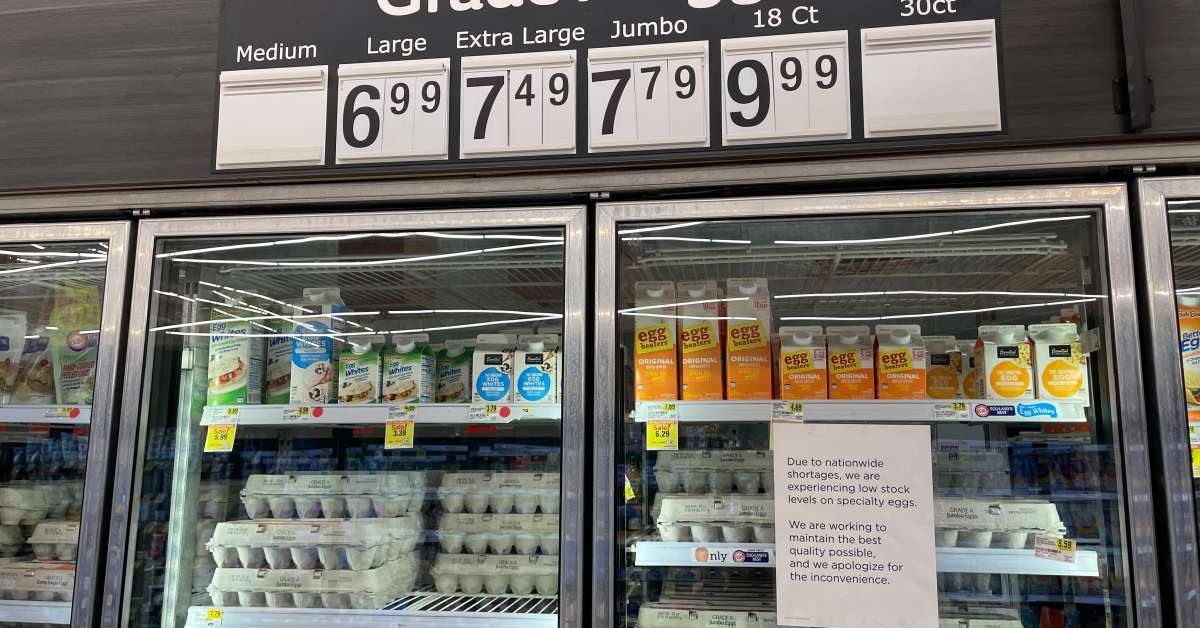Egg prices have reached another record high, according to data released by the Bureau of Labor Statistics on Thursday. In March, egg prices increased by 5.9%, which represents a slower rate of inflation compared to February (10.4%) and January (15.2%). Overall, prices are up 60.4% compared to the previous year. The primary causes cited for the rising prices include a bird flu outbreak and broader inflation. However, wholesale egg prices have started to decline as bird flu outbreaks have diminished, with no outbreaks reported at egg farms in March. Supply has increased while demand has dropped, as noted by the New York Times.\n\nPresident Donald Trump, during his campaign last year, promised to reduce grocery prices and has recently praised his efforts, claiming a 59–79% reduction in egg prices. However, these figures refer to wholesale prices, not retail prices. According to the Agriculture Department, wholesale prices have fallen from $6.55 per dozen in January to $3.26 as of last week, peaking at over $8 per dozen in February. Economists suggest that the drop in wholesale prices may have occurred too late in the month to reflect in retail prices. The Bureau of Labor Statistics reports that the average retail price nationally was $6.23 per dozen in March, up from $5.90 in February. Cal-Maine Foods, the largest egg producer in the U.S., acknowledged this week that it is under investigation by the U.S. Department of Justice’s antitrust division.\n— new from Bring Me The News
